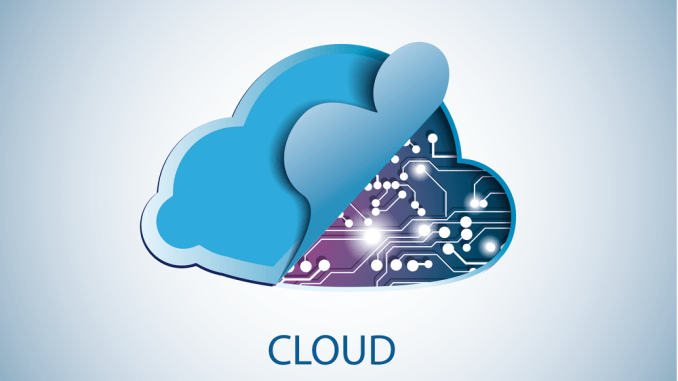
How Cloud Computing Can Benefit Your Small Business
An off-site computer resource or set of resources that can be quickly and easily accessed online and used as needed is referred to as "cloud computing."
Consider cloud computing as a key enabler for small businesses. Because of the flexibility it offers, workers now have access to a wealth of data. The outdated cloud-based office that used to fit in your pocket has replaced the gloomy racks of servers that once covered entire buildings of the office.

What is Cloud Computing?
Cloud computing is a method of storing and accessing data, systems, and programs over the internet. With cloud computing, local hard drive storage is no longer necessary. Businesses can access crucial data using cloud computing from any location with an internet connection. Typically, there are three types of cloud infrastructure options:
-
Platform as a service (PaaS): A complete cloud computing model that includes software, hardware, and infrastructure services is known as platform as a service (PaaS)
-
Infrastructure as a service (IaaS): A collection of computing, storing, and networking resources. Microsoft Azure and Google App Engine are two examples. Amazon Web Services and Oracle Cloud Infrastructure are two examples.
-
Software as a Service (SaaS): This software is accessed online rather than downloaded and used locally. Adobe Creative Cloud and Trello are two examples.
What Are the Benefits of Cloud Computing?
Cloud computing is a method of storing and accessing data, systems, and projects over the internet. With cloud computing, local hard drive storage is no longer necessary. Businesses can access crucial data using cloud computing from any location with an internet connection.
If you haven't already signed up for one of these services, you may be wondering what advantages there are to switching your computing tasks online. Here are some of the benefits of cloud computing that are most frequently mentioned:
-
The availability of data: Companies use cloud technology to access information from any location using a compatible internet-connected device. Cloud computing stores data online as opposed to on your computer or a server at your workplace. Anyone with the proper credentials can instantly access the information from any location via the internet thanks to a central web-based hub that contains it.
-
Data backup and restoration is simple: Natural catastrophes, power outages, or hardware malfunctions can all result in catastrophic data loss that destroys a business at any time. Critical information is kept safe and accessible when it is stored or backed up in the cloud by an organization.
-
It scales well: You can easily change how many users have access to cloud applications as your business expands or contracts. You just pay for what you use, so there's never a concern about running out of space or paying extra costs.
-
It keeps uniformity between users: It's simple to make mistakes when several employees are working on the same computer file. The fact that cloud-hosted files are kept in a single, central location and consequently automatically synchronised between all devices ensures that users always appear to have access to the most recent version of the file.
-
It makes remote work easier: Companies frequently use specialized software that employees wouldn't have access to on their personal computers. Users can access files and specialized applications just like they would in the office thanks to cloud computing. The advantages of cloud computing for remote work are especially crucial in light of the fact that 1 in 3 remote workers might leave if forced to work in an office full-time after a pandemic.
-
It is cost-effective: A cloud computing provider stores your data for you without all the drawbacks, whereas purchasing and maintaining hardware and networking tools requires a lot of time, expertise, and finances. Furthermore, building an internal infrastructure and a dedicated IT team is more expensive than setting up business operations in the cloud. You can be more flexible with your spending and only pay for what you use with a cloud setup. Although the costs of business-focused cloud services are still a monthly or yearly expense, they are manageable and predictable
Wrap Up
Many businesses prefer the convenience and flexibility of cloud computing to conventional local hosting and on-premise software when it comes to data storage, processing, and collaboration. Instead of storing applications and data on a hard drive, cloud computing allows you to access and store them online. The advantages of cloud computing for small businesses also include easy backups, sync files automatically, remote work facilitation, and accessible data.
Trending
-
1 How Does SaaS Differ From IaaS And PaaS?
Fabrice Beaux -
2 Single Page Applications vs Multi-Page Applications
Fabrice Beaux -
3 Top 7 Effective Strategies for Multi-Language Website Development
Fabrice Beaux -
4 Boost Engagement to Infinity and Beyond: Unleashing AI-Driven Support
Anas Bouargane -
5 The Cheapest And Most Beautiful Stickers in CS2
Daniel Hall





Comments